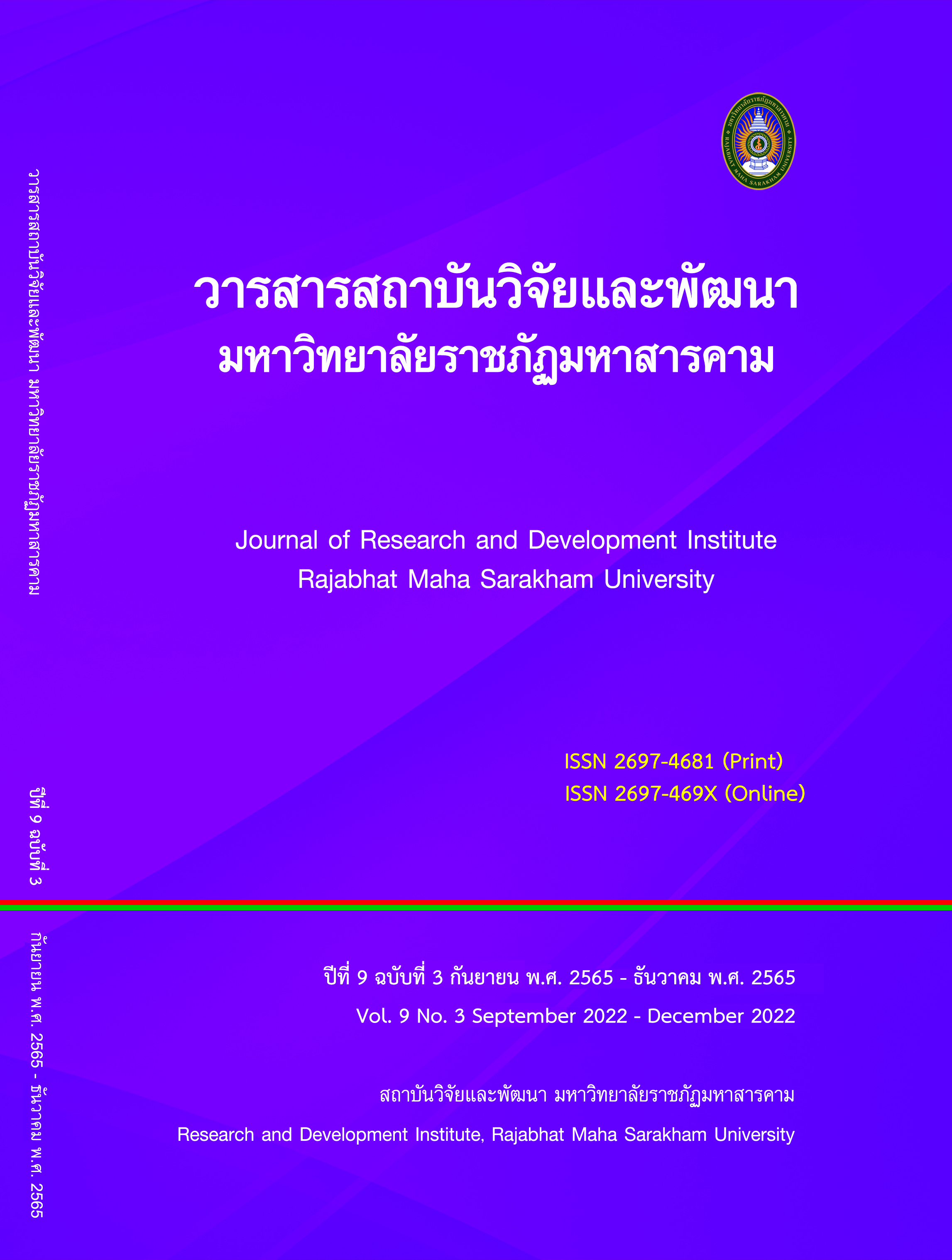Developing Training Course to Enhance the Potential of Guiding Activity Management in the Digital Age for Junior Highschool Teachers
Keywords:
Training Course, Guiding Activity Management, Digital AgeAbstract
The objectives of the research were to 1) study the basic information for developing a training course to enhance the potential of guiding activity management in the digital age for junior high school teachers 2) develop the training courses 3) implement the training course and 4) confirm the effectiveness of the training course. The research was divided into 4 phases. Phase 1 and 2; to study the basic information for developing a training course and evaluate its effectiveness. It was achieved by analyzing document data, survey problems on the guidance of activity management and training courses. Phase3; to implement the training course in 20 junior high school teachers as the target group. Finally, phase 4; to confirm the effectiveness of the training course. The statistics were the percentage, mean, standard deviation, and t-test (dependent sample)
The research found that
- The study on the basic information of guidance on activity management and the demand of training courses showed that the teachers encountered issues regarding guiding activity management in the digital days. The demand for the guiding management activity training course along with follow-up student evaluation was raised to a high level.
- The developed training course consists of an objective, content, activity management, media, the source of knowledge, and assessment process. The effectiveness evaluation of the course by the professionals resulted in a high level of compatibility and adequacy in the course and the handouts, which meant that the training course could be utilized for the development program.
- The outcome of the training course displayed that all of the participants passed the assessment at 80 percent and delivered overall satisfaction which was considered as a high level of understanding of guiding activity management in the digital age.
- The implementation of guiding activity management found that 3 teachers were able to create the guiding activity plans at the highest level. The students also indicated that the management was effective at a high level.
References
Chonpracha, S. (2007) The development of a non-formal education training curriculum for teachers in basic education institutions under the Office of Chiang Rai Educational Service Area Office 2. Bangkok: Srinakharinwirot University.
Khaemmanee, T. (2002). Science of teaching. Bangkok : Chulalongkorn University.
Krejcie, R. V. & Morgan, D. W. (1970). Determining Sample Size for Research Activities. Educational and Psychological Measurement, 30(3), 607-610.
Ministry of Education. (2008). Basic Education Core Curriculum 2008. Bangkok: Thailand Agricultural Cooperative Assembly Printing House.
Ministry of Education. (2019). Policy and focus of education management of the Ministry of Education, fiscal year 2019. [Online]. http///www.moe.go.th/webem/2518/5/449.html
April 2020]
Satawut, N. (2017). Curriculum Development. Bangkok : Ramkhamhaeng University.
Sukprasert, P. (2002). Seminar on District Agriculture/District Agriculture/Head of Planning Department. Bangkok: Training Division.
Upamaithichai, T. (2014). Fundamentals of Educational Management. Bangkok : Chulalongkorn University.
Utranan, S. (1989). Fundamentals and principles of curriculum development. (3rd ed). Bangkok: Mit Sahai Printing House.
Wongyai, W. (2011). Curriculum development in higher education. Bangkok : R and Print.
Downloads
Published
How to Cite
Issue
Section
License
Copyright (c) 2022 Journal of Research and Development Institute Rajabhat Maha Sarakham University

This work is licensed under a Creative Commons Attribution-NonCommercial-NoDerivatives 4.0 International License.
Articles that are published are copyrighted by the authors of the articles







